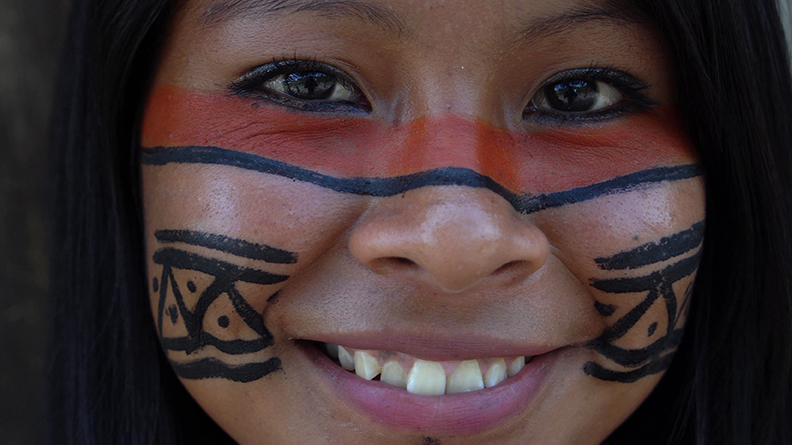Forest People, FOREVER THE FOREST
The Guarani People of South America
Guardians of the Forest and Ancestral Wisdom
The Tupi-Guarani are one of the most influential Indigenous peoples in South America, carrying a rich cultural, spiritual, and linguistic heritage that transcends borders. Spread across vast regions of Brazil, Paraguay, Uruguay, Bolivia, and Argentina, they share a worldview deeply connected to nature and the spirituality of the forest. However, like many Indigenous peoples, they face challenges that threaten their survival and traditions.
In this article, we explore the history, culture, beliefs, and contemporary struggles of the Tupi-Guarani people, highlighting their resilience and fight to preserve their identity in a constantly changing world.
Origins and History of the Tupi-Guarani
The Tupi-Guarani belong to one of the largest Indigenous linguistic families in South America, the Tupi peoples, whose presence dates back thousands of years before the arrival of Europeans on the continent. Their traditional territory extends from the Amazon to southern Brazil, Paraguay, Uruguay, and parts of Bolivia and Argentina.
Before colonization, the Tupi-Guarani were semi-nomadic people, living off hunting, fishing, agriculture, and foraging. Their villages were established along rivers, where they cultivated cassava, corn, sweet potatoes, and other essential crops. Their relationship with the forest was always marked by respect and balance, and their botanical knowledge includes the use of medicinal plants for healing and spiritual rituals.
With the arrival of Europeans in the 16th century, the Tupi-Guarani suffered one of the most devastating impacts of colonization. Many were enslaved, killed by diseases brought by the colonizers, or forcibly removed from their lands. Despite this, their cultural influence remains alive in the Portuguese language, myths, and Brazilian folklore.
Tupi-Guarani Culture and Spirituality
Tupi-Guarani culture is rich in mythology, rituals, and spiritual practices that reflect their deep connection to nature and the cosmos. For them, the world is not just a physical space but a manifestation of spiritual forces that must be respected and understood.
The Guarani Language and Its Importance
The Guarani language is one of the most significant cultural legacies of this people. In Paraguay, it is one of the official languages and is widely spoken, taught in schools, and present in everyday life. In Brazil, despite not having the same official recognition, many Tupi-Guarani words are embedded in Portuguese vocabulary, especially in place names, animals, and natural elements, such as “Iguaçu” (big water), “Paraná” (similar to the sea), and “Pindorama” (land of palm trees).
Mythology and Spiritual Beliefs
Tupi-Guarani mythology is filled with stories about the creation of the world, mythical heroes, and protective spirits of the forest. One of the most well-known myths is that of Nhanderu, the great creator, who shaped the world and gave rise to the first human beings.
Another important myth is that of Karaí, one of the four prophet-guardians of the Guarani people, who spiritually guides the community and teaches the ways of ancestral wisdom. The belief in the Land Without Evil is also central to the Guarani—a vision of a spiritual paradise where there is no suffering, disease, or oppression. Many villages organize themselves spiritually in pursuit of this sacred place, following the teachings of their spiritual leaders.
Rituals and Sacred Medicine
Tupi-Guarani rituals involve chanting, dancing, and the use of medicinal plants for healing and spiritual connection. Ayahuasca, known among some Guarani groups as Caapi, and sacred Rapé are used for spiritual cleansing, strengthening intuition, and connecting with ancestors.
Tupi-Guarani traditional medicine is a treasure trove of knowledge about herbs and natural treatments. The use of plants like Jurema, utilized in shamanic ceremonies, and Sananga, a natural eye drop made from medicinal plant roots, is widely known among Indigenous healers.
Contemporary Challenges and the Fight for Land
Unfortunately, the history of Tupi-Guarani resistance is marked by centuries of persecution, land loss, and threats to their culture. In Brazil, many Guarani groups live in territories contested by farmers, large corporations, and government projects that disregard their rights.
The expansion of agribusiness, mining, and large hydroelectric projects has led to the destruction of sacred territories and Indigenous reserves. In many regions, there are reports of violent attacks by landowners and private militias trying to expel the Guarani from their ancestral lands.
The Struggle for Rights and Recognition
Despite the hardships, the Tupi-Guarani continue to resist. Indigenous leaders, activists, and international organizations have mobilized to secure land demarcation and protect Indigenous rights. Movements such as the March of Indigenous Women and the Articulation of Indigenous Peoples of Brazil (APIB) have gained strength in the fight for visibility and justice.
In some regions, Indigenous education projects are being implemented to ensure that new generations have access to traditional knowledge and can preserve their cultural identity. Bilingual Indigenous schools have emerged as a means to keep the Guarani language alive among younger generations.
The Future of the Tupi-Guarani and Cultural Preservation
Preserving the culture and land of the Tupi-Guarani is not only a matter of social justice but also essential for maintaining biodiversity and the ecological balance of the Amazon. Indigenous ancestral knowledge is crucial in combating climate change and protecting natural ecosystems.
Valuing Tupi-Guarani culture also involves spreading their stories, myths, and traditional knowledge. The growing interest in Indigenous spirituality has led many people to connect with shamanic practices and seek a more harmonious relationship with nature.
If we want a sustainable future for humanity, we must learn from those who have inhabited and protected the forest for centuries. Supporting the struggle of the Tupi-Guarani means recognizing the importance of their culture and ensuring that their wisdom continues to illuminate the path for future generations.
The Tupi-Guarani are more than just an Indigenous people—they are guardians of ancient wisdom, protectors of the forest, and representatives of a worldview that prioritizes harmony between humans and nature. Although they face immense challenges, their resilience and spiritual connection continue to inspire those who recognize the value of cultural diversity and Indigenous heritage.
Queen of the Forest supports this cause by promoting the appreciation of Indigenous cultures and encouraging reconnection with ancestral wisdom. Honoring the Tupi-Guarani also means honoring the spirit of the forest and the richness of the peoples who inhabit it.
#TupiGuarani #IndigenousCulture #AncestralWisdom #IndigenousResistance #GuaraniPeople #ProtectTheAmazon #ForestGuardians


